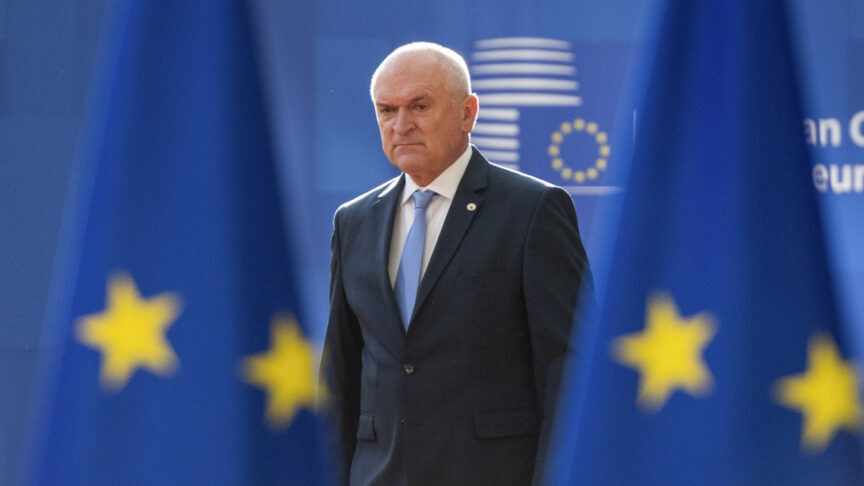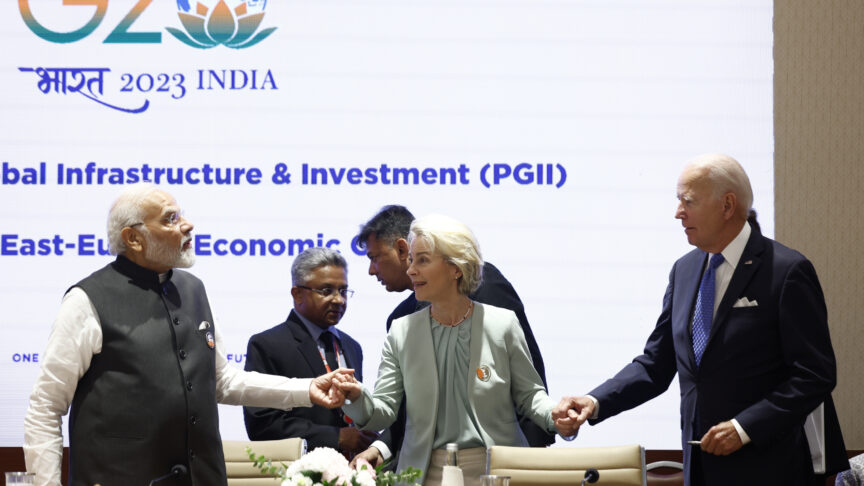Ukraine’s reforms: a lesson for the EU in Kyrgyzstan?
Thoughtless EU aid policies in corruption-ridden Kyrgyz may hinder rather than help
The EU’s experience of pushing for reform in Ukraine could be extremely useful when it comes to the former Soviet states of Central Asia. However, as the battle against rampant corruption in Ukraine becomes bogged down in internecine political infighting, the outlook for other states, such as Kyrgyzstan, which has been a prime beneficiary of EU aid in recent years, seems bleak. Although Kyrgyzstan has gone through two revolutions in the last ten years, it is still grappling with huge levels of corruption for such a small country. Before the economic crisis, a 2013 World Bank assessment stated that the poverty level was at 37 percent – translating to roughly two million people.
This year, the rapid decline of the economy and countless social issues have served to reignite the debate on reform. Over several years the EU has funded reform initiatives to the tune of tens of millions of euros. According to an EU Commission report, the “EU allocated €55.2 million to Kyrgyzstan in 2007-2010. For 2011-13, a €51 million allocation was made for priority areas. The country also benefits from the EU’s thematic programmes: the European Initiative for Democracy and Human Rights (EIDHR)”. In 2014-2015, the EU provided over €36 million in grants to the education system at the same time as a recent domestic poll showed that 26 percent of corruption in Kyrgyzstan occurs in educational establishments.
Another poll by the World Bank and the Kyrgyz Ministry of Economy in 2014 showed that 37 percent of respondents thought that high quality education was only possible through bribing teachers. Shockingly, the poll also indicated that 44 percent of students have given a bribe in the last three years. The going rate for entrance to the (supposedly free) local university system is apparently €120. Kyrgyzstan’s social services are no better – 50 percent of pensioners have admitted giving bribes of €8-10. The OSCE’s own 2014 report on the subject confirms that bribery practices are endemic in education, health, and judicial systems in the Kyrgyz Republic. It states that the country's “judicial institutions are extremely ineffective and public oversight is very weak” in cases of corruption. EU policymakers have known about this for years. An ECA report stated that local corruption and lack of cooperation from national governments have derailed EU development programmes in Central Asia. It said that the EU Commission “could and should have been more rigorous in managing its budget support programmes in Tajikistan and Kyrgyzstan and tied these to specific anti-corruption measures“.
Quite apart from this widespread corruption, the UN Human Rights Office remains concerned at the “ongoing and widespread practice in Kyrgyzstan of torture and ill-treatment of persons deprived of their liberty for the purpose of extracting confessions, particularly in police custody; the number of deaths in custody and the fact that none of the cases reported to the Committee led to any conviction“. Given this backsliding on human rights and track record of corruption, the EU must revisit its aid policy in Kyrgyzstan.
Firstly, Brussels must improve its oversight of the European Bank for Reconstruction and Development’s (EBRD) lending policies on investment projects that are directly or indirectly associated with human rights violations in Central Asia. Specifically, it should work with the EBRD to comply with EU lending standards as the bank is financing the Kumtor gold mine, one of the biggest in the region. This particular project was embroiled in a scandal after reports surfaced of the potential negative environmental impact and human rights abuses of local activists at the hands of the Kyrgyz authorities. In October 2015, there were reports that the Kyrgyz state security service had deliberately harassed a team from Bankwatch (an environmental NGO) and human rights organisation Front Line Defenders during a trip to the villages near the mine.
Secondly, the EU should focus its efforts on ensuring the transparency of aid distribution at all levels of the Kyrgyz government – the ultimate beneficiary of the aid programme. The authorities must be made aware of the strings attached to this funding and of the fundamental need for reform. Kyrgyzstan has a vibrant civil society that can be extremely helpful in promoting the need for accountability in state institutions.
Too many times we have seen that corrupt and abusive authorities in the post-Soviet space take advantage of the EU's wishful thinking in its aid policies. To appease these governments is counterproductive. Naïve western policies tend to embolden regimes in their quest for more power, which in turn leads to more misery, suffering and violence. Corrupt Kyrgyz political elites are not much different to their counterparts in Ukraine. So the challenge of anti-corruption reforms in Ukraine is a showcase for the EU. Brussels must realise this and revise its strategy towards other states with similar symptoms of chronic misconduct. If Ukraine teaches them nothing, then Europeans will find that they are just wasting their time and money in Kyrgyzstan and Central Asia as a whole.
Ryskeldi Satke is a contributing writer with research institutions and news organisations in Central Asia, Turkey and the US.
The European Council on Foreign Relations does not take collective positions. ECFR publications only represent the views of their individual authors.


